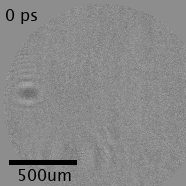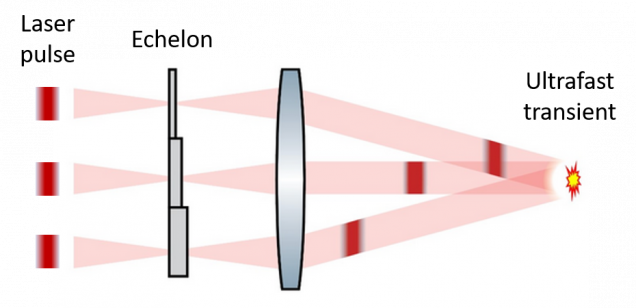Imaging at trillion frames per second
Summary: We present a method for acquiring a sequence of time-resolved images in a single shot, called Single-Shot Non-Synchronous Array Photography (SNAP). In SNAP, a pulsed laser beam is split by a diffractive optical element into an array of angled beamlets whose illumination fronts remain perpendicular to the optical axis. Different time delays are imparted to each beamlet by an echelon, enabling them to probe ultrafast dynamics in rapid succession. The beamlets are imaged onto different regions of a camera by a lenslet array. Because the illumination fronts remain flat (head-on) independently of beamlet angle, the exposure time in SNAP is fundamentally limited only by the laser pulse duration, akin to a “global shutter” in conventional imaging. We demonstrate SNAP by capturing the evolution of a laser induced plasma filament over 20 frames at an average rate of 4.2 trillion frames per second and a peak rate of 5.7 trillion frames per second.
- M. Sheinman, S. Erramilli, L. Ziegler, M. K. Hong, J. Mertz, “Flatfield ultrafast imaging with single-shot non-synchronous array photography,” Opt. Lett. 47, 577-580 (2022). link

